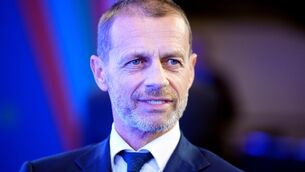Martin O’Neill signed up and ready to learn Nations League fate

The nation might not exactly be holding its breath ahead of the ceremony in Lausanne but there are solid grounds for paying attention all the same.
After all, it’s fair to say that Manchester United supporters were not exactly beside themselves with excitement when their team kicked off its 2016/17 Europa League campaign with a game away to Feyenoord on September 15, 2016.














